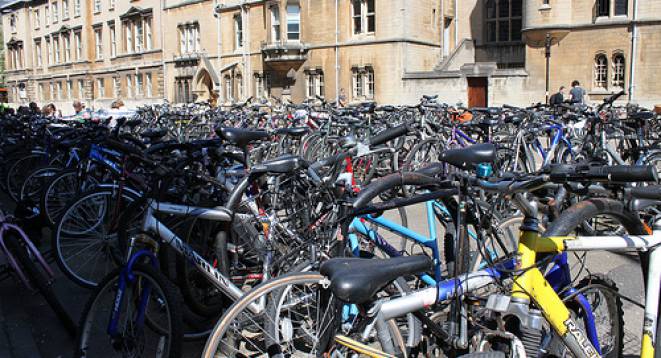Emerge 2013: Students get savvy about enterprise

Mobile phone charge points inside old phone boxes, powered by solar panels on the phone boxes, funded by adverts inside the phone boxes - an idea in the making from Kirsty Kennedy, a third year geography student at the London School of Economics (LSE).
The 21-year-old was the first student we happened on at Emerge 13, the student social entrepreneurship conference held in Oxford, UK this weekend. She was one of more than 400 delegates.
"I got interested in social entrepreneurship last year," said Kennedy, secretary of LSE's social entrepreneurship society. "There's a big social entrepreneurship community at LSE. There are about 13 of us here today."
Kennedy and a friend have won £4,000 from social enterprise support fund UnLtd to get their idea going. "We're interested in public space solutions to public problems. We want to bring renewable technology more into the public domain," she told us.
Pranav, an international trading logistics student at Oxford Brookes University who was also at the Said Business School (SBS) on Saturday, said he had no specific interest in social enterprise yet, he just wanted to broaden his knowledge.
"It's just good to learn things from a personal perspective, rather than just reading it in books. My peers don't talk about social enterprise; they're not that interested. I'll post about this on Facebook but you can't force them to learn," he offered.
A female student setting up a student social entrepreneurship conference called SenseAbility next March in Germany, said the sessions at Emerge were making her see the world differently.
"I don't know whether I want to work in a social enterprise or found one in the future, but I'm here to learn new ideas," she said.
"I've just been to the circular economy session. I hadn't heard the term before. The concept of not owning things, but renting them so the provider maintains the product rather than building in planned obsolesce is a really interesting concept, we need to think about it more.
"The people I know my age still have a strong interest in getting into the corporate world and banking," she added, a touch disheartened.
The Emerge event, now in its fifth year is organised by the Skoll Centre at Oxford University's Said Business School and Student Hubs - which supports students interested in social action. Founding partner Barclays bank has been involved since the inception, and its presence was felt in the financial advice and entrepreneurship sessions at lunchtimes.
The agenda was wide, ambitious and focused on high-level system change.
Pamela Hartigan, director of the Skoll Centre, said in her opening speech that social entrepreneurship should be relabelled 'intelligent entrepreneurship'. Others talked about evil enterprise (traditional business) versus enterprise (social enterprise).
Speakers, such as F Xavier Helgesen founder of Off: Grid Electric, a solar enterprise based in Tanzania, talked about meeting key business supporters and financiers in the early years of Emerge, and how it led to success.
The main sessions spilled over with students sitting on steps and leaning against walls to hear agenda-setting presentations from the likes of Ndidi Okonkwo Nwundeli, founder of LEAP Africa and Paul Rice, CEO of Fairtrade USA, who spoke about redefining the fair trade system to see ethical exchanges within and between less developed industries, as well as increasing the range of goods that are available with fair trade certification schemes.
There was talk about how a painful, hard journey can be eased by a supportive network and discussions on what ideas were needed in a changing world.
In the Prospecting for Opportunities session, Ravi Patel, chief education advisor of the Pearson Affordable Learning Fund, suggested students look to ideas which can support older people as our age demographic alters. "There is money in this," he said.
The conference had an international flavour, and those identifying themselves in the Building Social Entreprenership Communities in the University Ecosystem identified themselves as coming from Cambridge, Oxford, Southampton and Bristol, as well as Goldsmiths and LSE universities in London.
